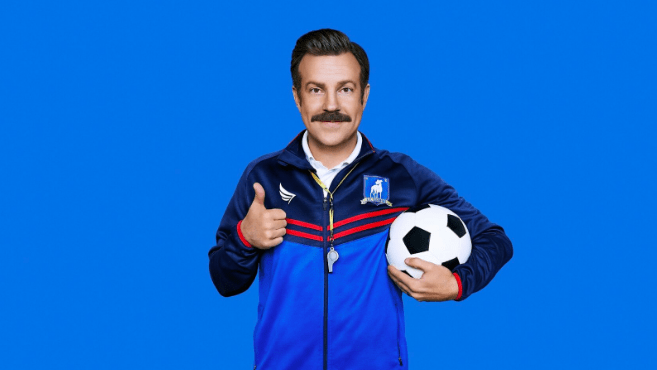It’s just not that difficult to find a coach now – on the website Profi, there are 54 specialists who can teach you how to play cards alone. It is not true that in the end you will be taught great poker, and the prices there are high ($200 per hour, by the way).
Finding a good coach is much more difficult. At a minimum, it is necessary that he be competent and really be able to teach you something new and useful. How to evaluate a potential mentor if you have been hanging out at NL5 for six months is a mystery. In addition, you should feel comfortable and convenient with this coach so that training does not turn into torture, and you are not tormented by flashbacks from school times.
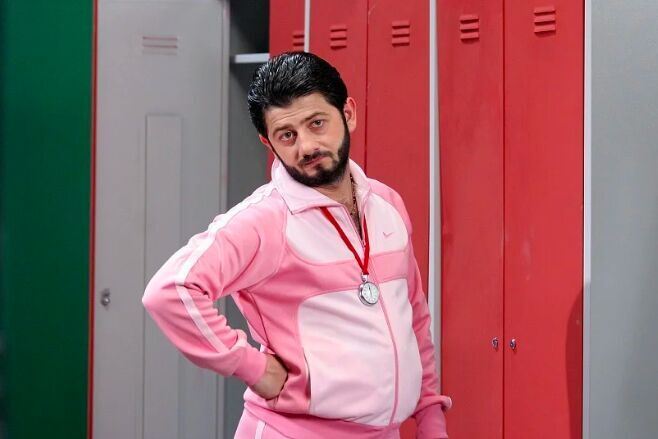
To help sort this all out, we interviewed coaches, recent trainees, and a poker fund owner to find out how to choose a mentor and get the most EV out of your lessons. They also learned how to save money on training and when you need to run as fast as you can from a coach.
Coaches' opinion
Vladislav pravdazatoboy // Regular Increment
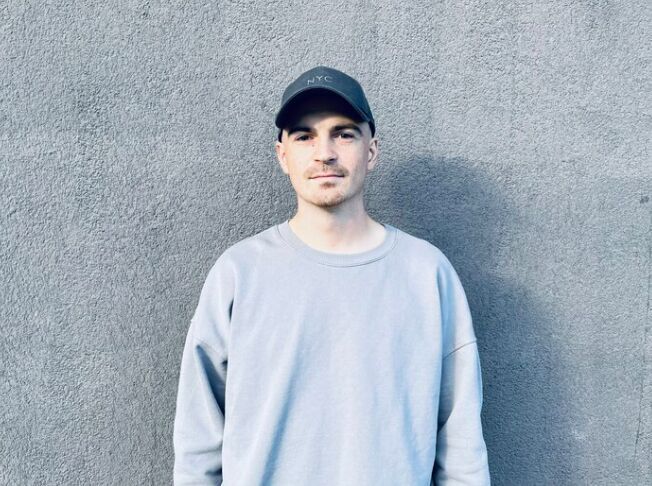
I think two things distinguish a good coach: a fundamental understanding of the material and the ability to explain complex concepts in simple terms. It also seems to me that a novice player simply does not have the skills to distinguish a weak coach from an industry locomotive, so the most working option is to rely on the institution of reputation and the advice of more experienced colleagues.
How expensive a coach charges is definitely not an indicator of the level of competence. Definitely, a tournament mentor, for example, should beat at least the average stakes ($20-$30+), but then ABI ceases to play a role. Because, on the one hand, not every ABI $100 player is a good "coach", but at the same time, there are examples of strong coaches who do not play high stakes.
In my opinion, if the coach plays big stakes, then it makes no sense to go down to the limits of the students in order to understand the trends of the field. All the basic concepts built on current trends will only work better at lower stakes. Often this thesis is rejected by people, and it begins to seem to novice players that it is more difficult to beat low limits, because “there is a completely different game”, but problems arise only from the inability to adapt to weak opponents, which, among other things, can be taught by a competent mentor regardless of what limits he plays.
What should you ask your coach before starting a session? Find out if the coach teaches "to the point". If the answer is yes, run.
I think that you just need to find a mentor, the efficiency of classes with which will be the greatest, in terms of the ratio of knowledge gained to the funds invested. At the start of a career, it’s definitely not a mistake to invest $200-500 in upgrading your own skills, and then put aside, say, 5-15% of the monthly expectation for this. I would also keep in mind that in the countries of the former USSR, many are willing to pay five or more thousand dollars for several years of study at the university, after which the salary can sometimes be $500 a month. At the same time, novice poker players often consider investments in training to be something unnecessary or optional, although with the right approach, after six months, you can see the result and reach an expectation comparable to working “at the factory”.
As a result: the more we save on ourselves and the longer we postpone the start of systematic work with the coach, the more we slow down our own progress and cut our potential expectation.
Sergey Elendil // From Siberia with love :)

The main difference between a good coach and a bad one is experience. I don't know anyone who can be a great coach right away. You can be a talented player, watch a bunch of other people's sessions, and spend many hours in the solver, but it is still extremely difficult to convey information to a student without teaching experience. Especially if the coach is not well-spoken, although experience can solve this problem. In the foundations, some players who want to become coaches train guys for free, just to gain experience. I would recommend going to someone who has done 100+ hours of training.
From the first training, you can understand the level of competence – if the coach did not even open your base and did not prepare, then most likely nothing good will come of it. The presentation of the material is also important, but here to each his own – you need to choose what is right for you.
Most low-stakes players make absolutely basic mistakes. It seems like not much has changed there in the 10 years since I started my poker career. So a qualified coach doesn't need to play low stakes to "keep abreast of field trends".
Before taking a class, I recommend asking the trainer for a ten-minute excerpt from one of the lessons, listening to his thoughts, and understanding whether you like the presentation of the material and whether the speed of speech suits you. If the coach does not have such a test video, then he probably simply does not have the necessary experience.
If you are new to poker and you need some basic theory, then I would recommend you pay attention to those who play not very high stakes. Most students – especially those who have been playing for years – can improve their base very well – for example, blind defense ranges and continuation bets. But it all depends on your goals and objectives. If you adequately assess your level of play, you can find an excellent coach with low limits and save on training. For example, if you're an amateur but play high enough, a $10 ABI trainer might be more suitable for you, who can explain the basic concepts to you. If you are a good regular and need to find and eliminate leaks, then it is unlikely that you will be satisfied with a coach with limits below your working limits.
A regular will often only need one class for a couple of hours, where the coach will point out the leaks to him. If we are talking about a beginner, then everything is individual – it depends on the ability to learn new material and motivation for independent work.
If you have recently come to poker and you liked some kind of coach, then you can consider purchasing a video course, rather than individual training, especially if you need to master the basics. But this is an option for those who can motivate themselves to work independently. Usually, these courses are well thought out and tested on previous students, often buyers have the opportunity to ask questions to the trainer. This option is much cheaper than individual training.
Martin Zmej // Wake up the snake
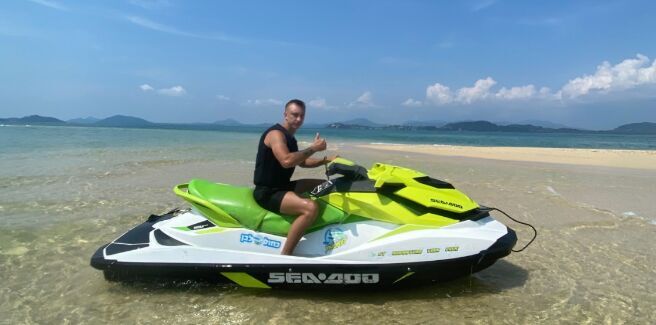
The coach must know all the tendencies of the limits he teaches, and have playing experience both at these limits and at higher ones.
A good coach differs from a bad one not in his results, but in the results of his students. It is also important to have practice – the longer and more actively he trains, the more experience he has, which means he spent more time with students, spent on preparing classes, and drawing up programs. And most importantly, a good coach knows what systematic actions a person should take in order to learn and remember new material, and then apply it in practice.
The trainer needs to check how the student learns the information. He should not force the student to copy the strategy but teach the very logic of poker – what, why, and how it works, how exploits are built, how to study GTO concepts, and how to work with the software correctly. The student, on the advice of the coach, must learn this himself in order to develop further, see many branches of development, and understand that everything is in his hands.
A good coach teaches you to learn, a bad one teaches you to copy his strategies! Copying leads to a dead end, locks the player in the framework of stereotyped thinking, slows down development, and leads to the fact that the player is too lazy to work on the game and solve other problems in self-development and learning. A good coach will explain to the student what needs to be worked on and why, and show what results it will give. Then the student will have motivation, and the process of working on the game will bring a buzz!
Questions to ask a coach before taking a session:
1. How long do you train for?
2. Do you have students who have been studying for a long time and what are their results? At what limits?
3. What stakes have you played and are you playing now, what are your own results?
4. How much time do you devote to the game, and how much to learning and preparing for training?
5. What can you teach me?
6. Do you check how students learn theoretical information and apply it in practice? Or do you just give me some advice and solutions, and then I myself have to draw conclusions and introduce new knowledge into the game?
7. Who did you study with? Where do you get theoretical and strategic information from?
Student opinion
Okusher
First, I looked at how the post with the training proposal was formatted. If a person knows how to express his thoughts on paper in a structured, competent format, and without useless filler, then he should have a good head on his shoulders. Second, student feedback. But here you need to pay attention to the activity, rating, and other posts of the author of the review, otherwise it is quite easy to spawn fakes.
I told the coach in advance what interests me the most and outlined the goals of my training. The coach is the bridge between you and the game. He must not only be technically savvy but also know how to teach an adult (as for me, this is the most important thing). And it is not at all necessary whether he plays regularly or rarely.
I have not come across incompetent coaches yet. Any coach has things in which he is strong. And in general, 90% of training depends on the student :) And I will consider a good trainer who not only understands the discipline but also develops in the training technology itself.
Dusian // How I grind my new computer
When choosing a coach, I first paid attention to what limits he plays, and whether he understands the trends of the field. A coach who plays NL5k+ is unlikely to understand what people are doing in NL25 and be able to tell me how best to play against them. Secondly, I looked at the experience of the coach – how long he plays, how long he teaches, reviews, and their results. Well, the pricing policy is also important – I would not be able to afford to pay $100 per hour for a workout to understand how to break NL25 :)
When I negotiated with the coach, I asked where it would be convenient to communicate and in what format the training would take place, and whether it was possible to record the sessions.
If the coach himself plays, this is good, but in practice, it is not necessary. The main thing is that he teaches well. He also needs to understand what is happening at your limits, and not just show solver solutions that did not give up to anyone without tweaks :)
I had only one real class, with Megaman. And one more time for no reason, the guy from the discord decided to teach me, and here I ran into inexperience – poorly delivered speech, crumpled material, wrong presentation. I would not train with such a person :)
A good coach, in my opinion, clearly expresses his thoughts, he has a plan for how and what he will teach, has material supported by resources, and a good microphone is generally fantastic. If the coach is also a great setup, this is generally a plus.
Results before training
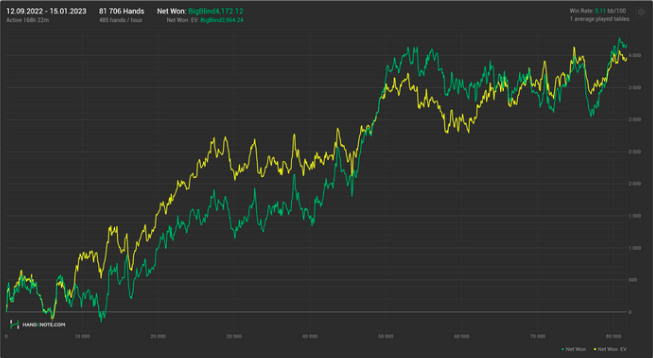
Results after training
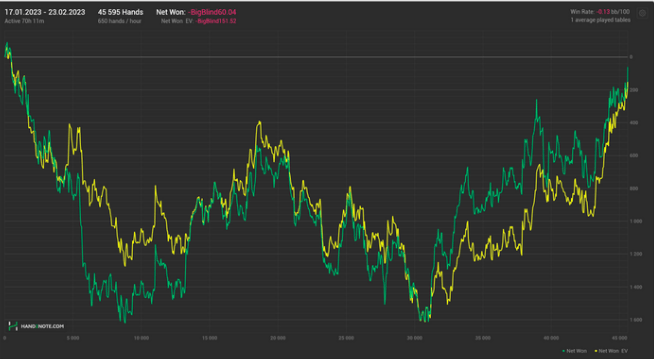
But it’s better not to show these charts to anyone, then I was hit hard :)
MrNoName // From the bowels of hell to heaven! Sprint marathon.
Chuyka helped me decide on a coach. I feel people very well and a few phrases in the description are enough for me to understand what's what.
1. Pay attention to reviews. What else can you pay attention to if you are a complete beginner and do not know where to start?
2. Before training, I asked only about training – in what format they take place and other details.
3. I believe that a good coach does not have to be a good athlete. This applies to any sport.
All the coaches I have worked with have been great. But I don’t know how to distinguish them from bad ones, because I already had a good coach, but there was no bad one.
Expert opinion
Artur hattab // head of the GreenLine fund
Points that I myself would pay attention to when choosing a coach:
1. Structural approach – the coach must have a clear and understandable roadmap of interaction with the player. “Let's look at your database, and then we'll see” – this, to put it mildly, is inefficient. Parsing the database, info on errors in it, practice, homework, verification, new info, practice, verification again, a mix of the TRP and an exploit of specific glades, and stuff like that. Also important is the balance of new information and the time for its assimilation, so that there is no mess in the head.
2. Experience – I would prefer to work with someone who already has experience in coaching, as he has already filled the first bumps, and made conclusions about what works/does not, and the material will be of better quality.
3. Results – the coach must play, and the coach must win. If this is a top player who just paused in the game (this happens quite often) – this is also ok. The main thing here is to beware of theorists who spent tons of hours in the solver (not always understanding how to work with it) and are trying to push it to the audience. We check this through the results of the students themselves – most often, if they are good, the students / the coach himself will share this information.
4. Motivation – does he want to make money or wants to share knowledge? It always becomes clear after the first lesson, by the aftertaste. You hear the enthusiasm in their voice, you feel that the coach delves into your personal situation – this is a good sign. “An hour has passed, can you extend?” – although I understand where this comes from (you should value your time), I myself would not work with such guys.
5. Personal qualities – you should be pleased to work with the person, otherwise it will end quickly and will not give the desired results. Read his posts, listen to how he communicates, do your own mini-analysis.
A trainer is just a tool, just like a solver, for example, so the result always depends on you. It's 2023, but people are still waiting for the magic pills.
